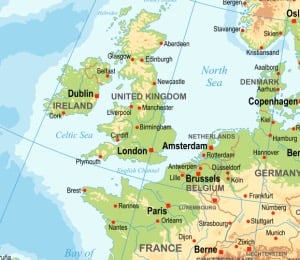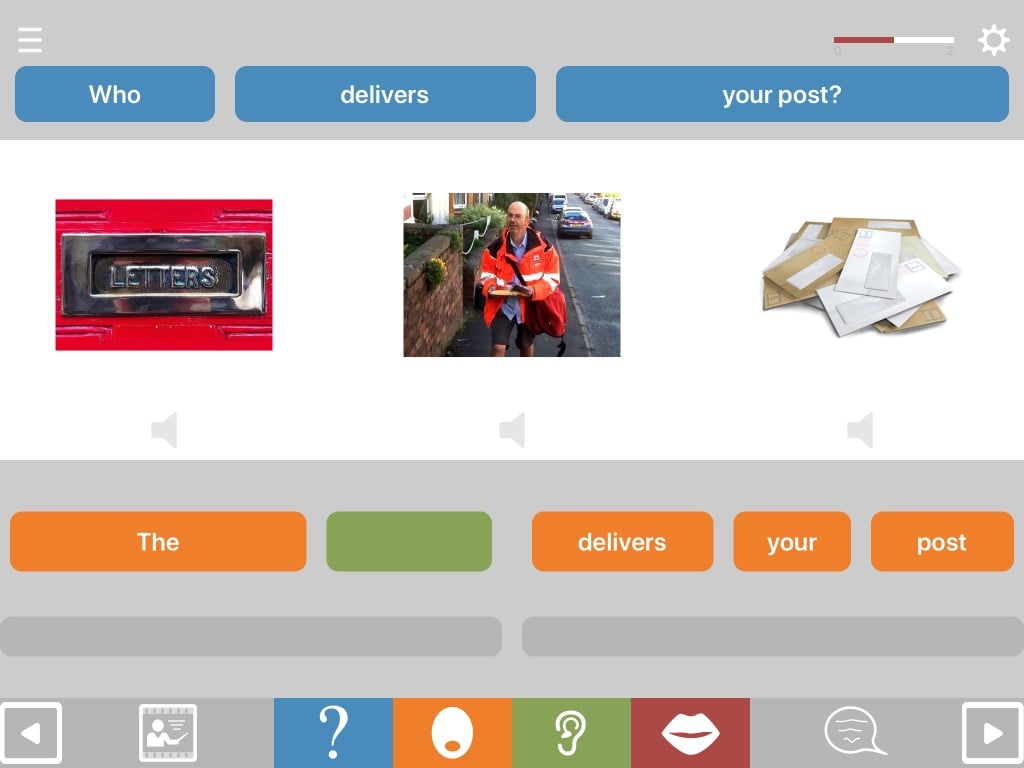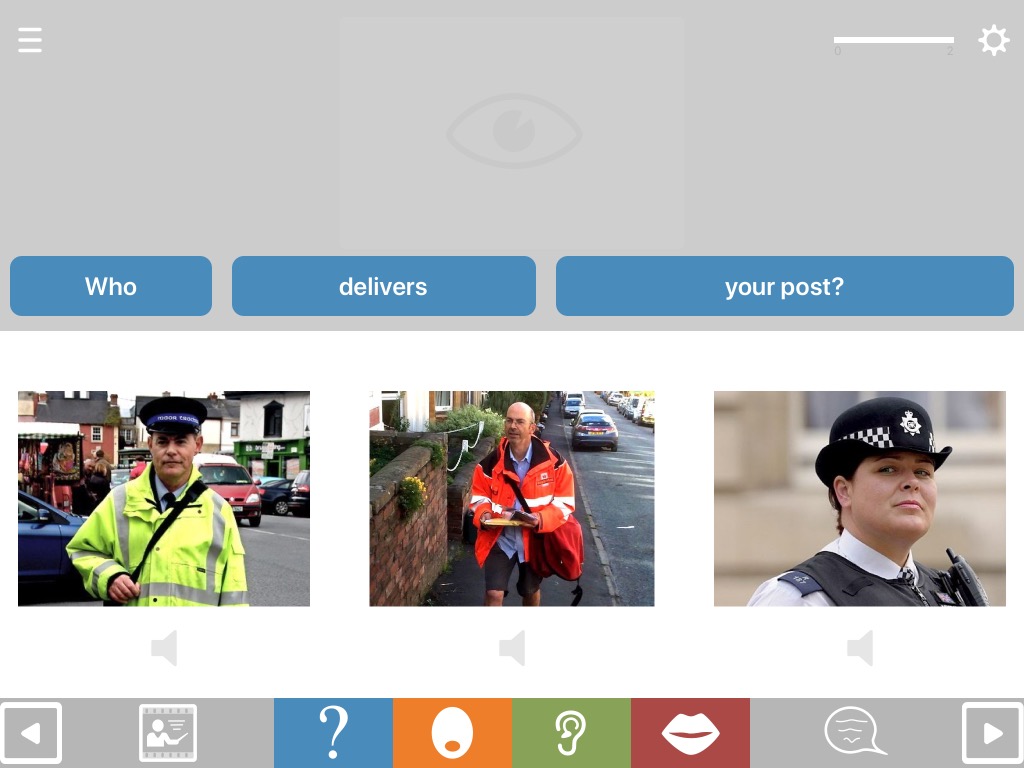The importance of context in word-finding therapy
Imagine you’re having a conversation with someone with fairly severe aphasia. You happen to know that she and her husband are going on holiday soon, and you ask her the question: “Where is it you’re going for your holiday?”
What’s her internal reaction to hearing that question?

Hearing the word “holiday”, she instantly feels trepidation – will it be cancelled, or will they get stuck there because of Covid travel restrictions? She sees a mental image of the suitcase she’s going to need to pack; of the taxi they’ll get to the airport, and of the plane they’ll have to go on. And she remembers that her husband is scared of flying, and she thinks how she’ll have to deal with all that; and she’ll think of Paris (which is where they’re going) and of the hotel they’ll be staying in.
Instantly, all these concepts become activated, and thus become potential candidates for a role in her reply to your question. It’s not just that she needs to “access” the word “Paris”, she also needs to suppress all the other elements vying for a role. In connectionist terms, there needs to be an adequate differential between the level of activation of the concept of “Paris” and that of its rivals. These rivals provide contextual competition.
When someone with a fully functioning language system hears the question “Where is it you’re going for your holiday?”, they instantly know the precise focus of the question, i.e. the destination, and they can suppress all the other candidates so quickly that they barely get a chance to compete. That’s because the combination of the question where and the verb go acts as a very clear cognitive-linguistic signpost to direct our attention to the role of destination, one of the potential thematic roles that exist in human language. It’s an incredibly quick and efficient process.

But if you have aphasia, your ability to interpret this kind of signpost is likely to be diminished. The result is that the person with aphasia is faced with a mishmash of concepts and half-accessed words. It’s a bit like a crowd of people trying to get through a small door at the same time. The result is that no-one gets out.
How can we help?
Providing her with a map and asking her to show us where it is she’s going will be likely to clarify what it is we want to know about, viz. her destination. It will also provide her with a means of answering the question non-verbally. It’s even possible that during the act of pointing to Paris, she may well find the word (especially if it’s written on the map).

In addition to advocating the use of such conversational props with this person, we might also want to suggest some kind of word finding therapy. Traditionally we would probably consider something like picture-word matching with semantic coordinate distractors (e.g. Paris vs London vs Sydney), which has been shown to improve word finding in the context of “naming” tasks. But that kind of therapy on its own has a poor track record of generalising to spontaneous conversation.

The reasons for failure of generalisation need investigation, and are likely to be complex. Part of the problem might be that psycholinguistically motivated therapy techniques often fail to address this issue of contextual competition – competition that derives purely from the context in which retrieval of that word is being required.
Anyone who has looked at the connectionist models of language processing will be familiar with the concept of competition in lexical access. But much of the psycholinguistic theory that informs our therapy is based on single-word processing models; the connectionist models tend to focus primarily on competition from semantic and phonological rivals. Less attention is given to competition that derives from context.
Addressing contextual competition in word-finding therapy
So what are the implications of the contextual competition issue for our “word-finding” therapy? Our ability to prioritise our focus amid the competition depends to a large extent on an intact ability to process thematic roles. Is it possible, and would it be helpful, to devise an “in vacuo” * therapy that introduces this kind of competition in a controlled way for independent practice? Or is this competition issue so much about situational context that we need to work on it in the wilder, more unpredictable terrain of conversation itself?
If this kind of competition derives from other contextual elements, one approach might be to try and emulate contextual competition by asking a question together with a multiple choice response in which the distractors are contextual rather than coordinate. In the case of the question Where are you going for your holiday? the choice might be this:

In the real world of clinical practice we are highly unlikely to have the time to prepare custom-made materials in this way. But we could produce less personalised questions with multiple choice responses.
This is the rationale behind the Perspectives module:

Contrast this with a more conventional multiple choice option in which the distractors are semantic coordinates. This is the approach taken in the QA module:

What’s interesting is that many people I’ve tried this with find this kind of multiple choice task much harder with contextual/thematic distractors than with coordinate ones. This applies particularly to people with known sentence processing difficulties, but it also seems to apply to some people who don’t overtly demonstrate such issues.
Although “in vacuo” tasks have something of a history of being terminally divorced from the demands of spontaneous conversation, I don’t believe they have to be. If we can gain a clearer understanding of the complexities of “in situ” communication, perhaps we can introduce elements of these conditions into more “in vacuo” work, possibly with benefits for generalisation. I think there’s huge potential for research in this area.
- I first encountered this term for decontextualised therapy in Doedens & Meteyard’s excellent paper The importance of situated language use for aphasia rehabilitation.